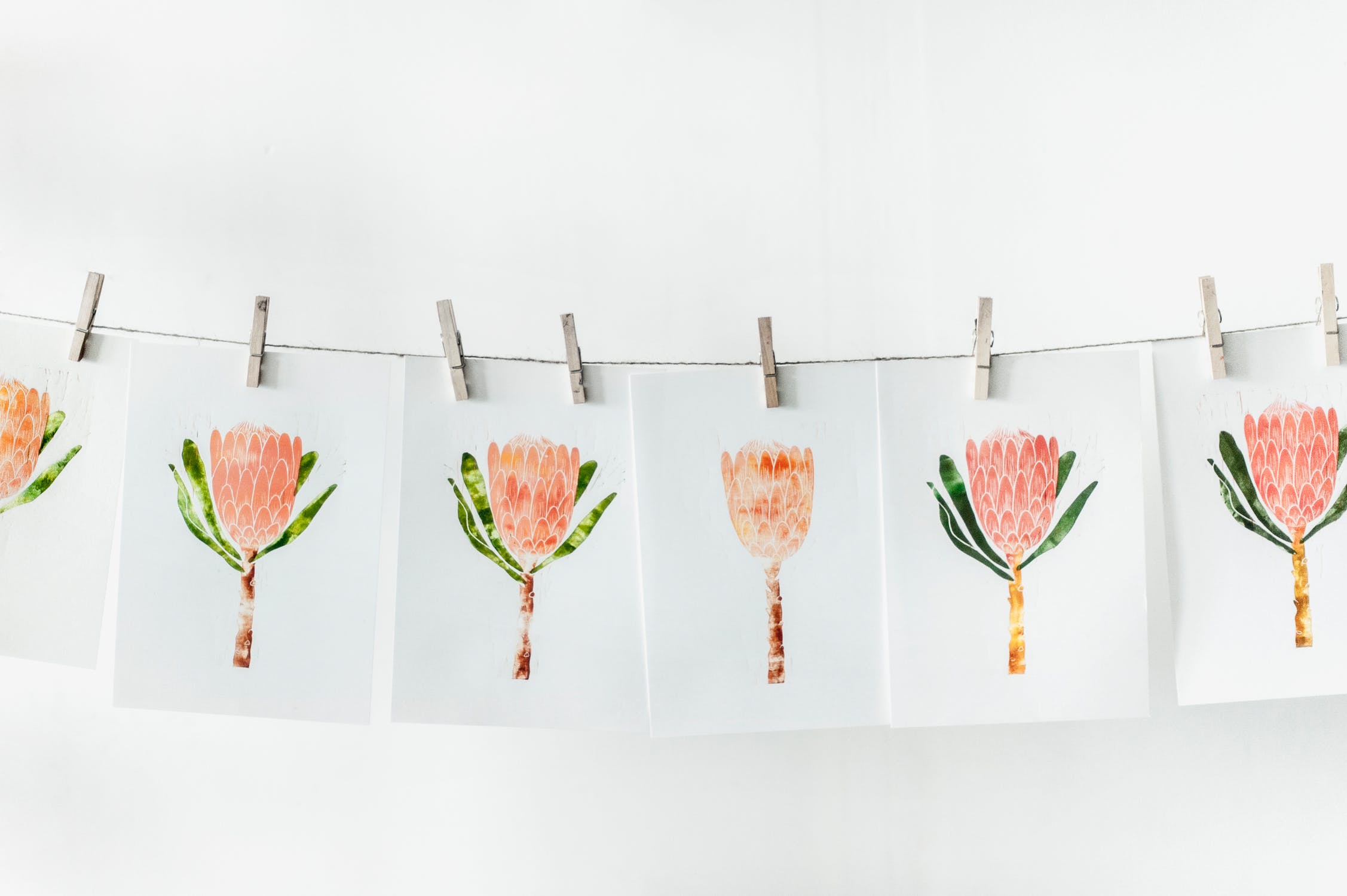
Unlike many people might think, creativity is not something “given” to a person. I firmly believe there is no such thing as a predisposition to creativity; on the contrary, I am sure that everyone is capable of creative thinking. Creativity is not something related to just doing art, or composing music, or writing; in my opinion, it is a more general personality trait that affects everything a person does in his or her life. Finding new ways of doing business, coming up with unusual ideas for leisure time, dressing in a certain way, approaching life problems from unexpected angles—all this (and much more) is related to creativity.
Today, we are going to talk about creativity in its more traditional meaning, though: creativity in art. As I said, there is no predisposition, which means that any person—given that they make an effort—can develop their creative “muscles.” In this post, we will discuss some of the means by which creativity can be discovered and boosted. Some of these means are more like mental exercises, others are related to lifestyle—but in general, they are all united by one purpose.
So, let’s roll.
Set Limits for Yourself
In a number of online articles dedicated to creativity, you can find silly advice like, “Unleash yourself,” or “Free your mind from restrictions and limitations,” blah-blah. To me, it seems like such advice can be given only by a person who never tried to use it themselves. Our minds work in such a way that we always need something to choose from; when there are alternatives, there are decisions that can be made. When you “set your mind free from boundaries” (if you ever manage to do this), you leave yourself with no alternatives to choose from; rather, you throw yourself into an ocean of endless possibilities to choose from—and the more choices you have, the harder it is to make one.
Instead, try limiting yourself. Think minimalistic. If you are a designer, you know the golden rule: “Less is more.” You also know that the most impressive and difficult design is the minimalistic one. So, challenge yourself to make a beautiful poster using only typography and white space. If you are a writer, write a decent story using no more than 50 words—just like Dr. Seuss did. If you are a musician, try conveying a complex emotion in a simple melody with a minimum of instruments involved. When you have restrictions, when your resources are limited, your brain gets into the mode that I like to call, “Make the best out of nothing.” The less opportunities there are, the more unusual ways of exploiting what you already have in your mind and can come up with. Forget all this “Free your mind of restrictions” nonsense. Challenge yourself, limit yourself—this is what pushes you out of your comfort zone.
Ask Yourself Questions
Questions are great. I love questions with my whole heart, mind, and body. Why? Because they lead you towards answers. Questions are like backdoors to problems, whatever they are. When you sit at your laptop at 3 a.m. trying to invent an engaging plot twist, it is like bashing your head against a wall. Instead, asking yourself questions lets you look at the situation from a different perspective, and possibly run into a solution where you did not expect. For example, you want to create an unusual character for your new novel. Most likely, you have a certain vision of him/her: the way he or she looks, or how he or she talks. However, this is not enough to make a character vivid. If you are experienced enough, you may not need questions here—most likely, you already know how to make characters lifelike, but if you are an amateur, or are going through a severe case of writer’s block, interviewing yourself about this character is a nice idea. Questions lead to answers, which in their turn lead to associations and new questions; this way you can unravel the strings of thoughts in your head.
For instance, you need a male character. Instead of immediately trying to imagine what he is like, what his motivations are, complexes, and inner conflicts, start with simple questions like, “What does he eat for breakfast?” I know, this is not profound enough, but we need to proceed by baby steps here. So, let’s say, he likes omelettes. The next question that naturally popped up in my head is, “Where does he usually eat his breakfast?” I immediately imagined a guy sitting next to a window in a cafe, and the French origins of the word “omelette” made me think of Paris, or some other French city. So, we already have a guy who likes omelettes for breakfast, and he is in Paris. “Is he a tourist? Is he a foreign specialist working in Paris temporarily? Is he a Parisian?” Look, three more options for me to explore. Okay, this guy is a Parisian; let’s say, his name is Pierre. “What stereotypes are there about Parisians?” I know stereotypes are not a nice way to think about people, but we need to start somewhere; so, let us say that Pierre is a little bit snobbish, likes art, looks stylish, and has had a number of love affairs this year.
New answers lead to new questions, so you may find yourself overwhelmed by them rather quickly. Besides, questions tend to get more and more complicated. From an omelette, associations can lead you to questions like, “Why is Pierre unable to have warm, long-lasting relationships with women?”—which can lead you to an answer like, “He was married, but then she cheated on him, so now he does not trust women, and breaks up with them before they can hurt him.” This is already something about Pierre’s psyche, his outlook. Not a very nice guy, I guess, but he has his reasons.
This is just a rough scheme, but I hope it demonstrates the process clearly. Asking questions can help you outline characters, events, and storylines quickly. Of course, things you come up with this way will require additional revisions and editing, but when you are stalled, this method can be a way out.
Take a Look at Other Spheres

When you are head deep in something, it may be difficult to take a break and look around. For example, as a designer, you might draw inspiration solely from the works of other designers; or, as a writer, you might be reading through tons of books by other authors, analyzing their writing techniques, storylines, and so on. Such an approach is definitely a productive and efficient one; however, by sticking to the field you work in, you rob yourself of inspiration that can be drawn from other sources. For example, if you are a graphic designer, go take a look at a fashion show: weird shapes of clothes, unusual color combinations, the texture of materials used by fashion designers—all this could give you inspiration for your own project. As a writer, attend a conference or a workshop on psychology—this could give you the understanding of motives human beings are sometimes driven by. Often, the more unusual and new a creative area is to you, the more inspiration you can draw from it.
Distance Yourself From Your Mood
All of us know the condition when life circumstances become so overwhelming that even a thought about writing anything feels somewhat painful. It is almost like, “Man, how am I supposed to write when I have this, this, and this going on?” The amount of chores that need to be attended to can pile up, and rarely does it set us in a good mood. Rather, the more we have to do, the more we freak out, panic, or get upset, accumulating stress and blocking our creative capabilities. It is well-known that stress and creativity hardly come hand-in-hand: the calmer you are, the more productive you are creatively.
However, there are cases when we need to keep on writing no matter what; for some of us, it is a job, for others it is a thing they cannot live without, or a hobby they are not ready to give up in favor of doing something else. Anyways, is it possible to overcome the condition when we do not feel like writing, or when we feel that our creative powers are at zero? Totally. One of the helpful methods is to distance yourself from the mood you are currently in. Paradoxically, in order to do it, you need to write about it (if you are a writer) or, say, draw it (if you are a designer or an artist). The key is to not try to be creative about it. Be lazy, be sluggish, be reluctant; stay in the mood you want to get rid of. For example, when I am at a zero creative capacity, I write about it in a way like this: “Nothingness. All I feel is that I am empty inside. The last thing I would want to do right now would be to write something. During days like today, all I want is to lie in bed under my cozy blanket, read a book, and care about nothing else. I don’t know when or whether I am going to get rid of this numbness, and so far I don’t care.” I keep on writing and writing like this, and guess what? t some point, I feel a little bit reinvigorated. Or, I draw heavy black figures cramming all the space on the sheet of paper, visualizing my inner condition—and by doing this, I pour it out of myself, so to say. This is what is called “distancing,” and you might want to try it to increase your creativity during the days when it seems it is gone forever.
Clean Up, or Make a Mess
There is nothing controversial about this point. If you are an accurate person enjoying a lot of free space, things around you ordered and organized, and your activities thoroughly scheduled, you might want to check whether there is some sort of disorder going on around you. Perhaps, you have not washed dishes for a week; or your apartment is full of empty pizza boxes (because you’ve been too busy with your latest project to clean up in time); or, you have been unable to complete something in time. Eliminating the source of distraction and/or discomfort can uplift your mood, and boost your creativity.
On the contrary, if you like the “creative/artistic chaos” around you, you might need to make even more mess. From personal experience, I know that there are a lot of people out there who draw creativity from random things scattered around them, or from various events following each other in a row, or meeting a number of new people in a short period of time, and so on. If you are this kind of person, adding a bit of chaos to your daily routine might be of help.
You can experiment as well. Accurate people might sometimes need a mess around them to take a look at things from a different perspective, and chaotic people might find inspiration in things getting organized and planned. You never know until you try.
Never Use Negative Motivation For Yourself
People trying to whip themselves up with affirmations like, “Come on, lazy ass, get to work, it won’t get done on its own,” or “I need to finish this task, or I will feel guilty and worthless,” and so on, freak me out. How can you expect yourself to perform well if all you do to motivate yourself is focusing on the negative?
Treat yourself with care. Any living being responds to care and kindness with positive emotions, and you are no exception—even if this care and kindness comes from yourself. Set yourself a reward for completing a task, motivate yourself by focusing on the positive outcomes of you finishing your job in time, do pleasant things for yourself regardless of whether there is a reason for it, or not—and your creativity will flourish (this is not to mention other positive side effects such as good mood, increased self-esteem, productivity, and so on).
Talk to People

Regardless of whether you are an introverted or an extroverted person, communicating with people is a great source of inspiration. Even when you feel like the last thing you would ever want to do would be to get out of your home and converse, do it. You must have people in your surrounding whom you like to spend time with, whose opinions matter to you, and whose taste you can trust. Meet with them, and discuss topics you feel concerned about. Ask them to express their opinion on the latest thing you wrote; ask for their feedback on your personality and/or life; what they think about the recent events that have occurred in the world. Hearing other people’s thoughts may kickstart your inner engine of associations, and your mind can suddenly come up with a couple of brilliant ideas seemingly out of the blue; the truth is that it is communication that saturates and feeds our minds, boosting our creative capabilities.
If you are more of a loner, consider meeting new people and making acquaintances to be an investment into your creativity. This is probably not a very nice approach, but it works: other people can be valuable resources of new impressions and thoughts, and if you do not feel like making friends with them, you can at least draw creative energy from them. Besides, communicating and networking can give you yet another resource: valuable connections and new opportunities, which is definitely a treasure for any creative person.
These are just some of the tips that can help you increase your creativity. Feel free to experiment and find your own ways of boosting your creative powers. When it comes to creating something—be it writing, art, or whatever—there is no such thing as “too many sources of creativity .” Good luck.

